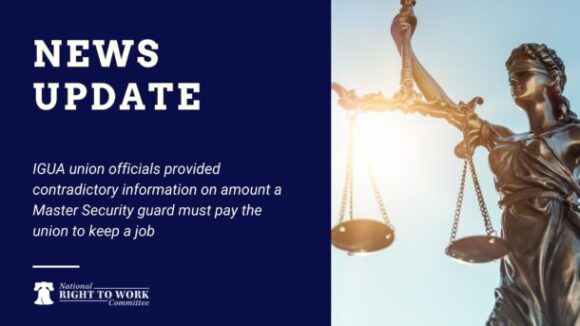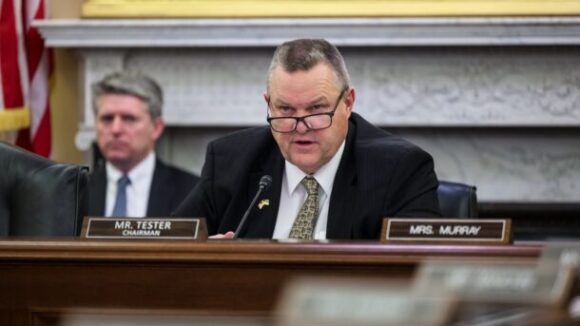GOP’s ‘Dangerous Liaison’ With Union Bigwigs
Josh Hawley distances himself from pro-Right to Work pledges, aligning with union bosses like the Teamsters, despite their history of corruption.

In the spring of 2009, when top bosses of the International Association of Firefighters (IAFF/AFL-CIO) union were pouring cash and “in-kind” contributions into Terry McAuliffe’s campaign for the Democratic gubernatorial nomination in Virginia, there was no ambiguity about what they expected in return: monopoly-bargaining power over public-safety employees in the Old Dominion.
McAuliffe himself made his intentions clear at a Democratic primary debate in Blacksburg on April 29, 2009. When asked directly if he would support a state law handing government union bosses monopoly power to speak for public-safety officers on matters concerning their pay, benefits, and working conditions, McAuliffe responded that he would “definitely sign collective [i.e.] monopoly bargaining . . . .”
Of course, the 2009 scheme hatched by IAFF union kingpin Harold Schaitberger and his henchmen to procure monopoly-bargaining power in Virginia with McAuliffe’s help fell apart when the latter was defeated in the Democratic primary by Creigh Deeds, who went on to lose in the general election. But this year, when McAuliffe decided to run again, he captured the Democratic nomination, and now the polls suggest he will be Virginia’s next governor.
During the 2012-2013 campaign cycle, the IAFF alone has poured roughly $440,000 in reported cash contributions into the campaign coffers of McAuliffe and like-minded Big Labor Democrats who are running for state legislative seats. And that’s not the only reason Virginians who support the state’s 20-year-old ban on public-sector monopoly bargaining, which was adopted with bipartisan legislative support and signed into law by Democratic Gov. Doug Wilder, should be concerned that McAuliffe is planning to gut or even revoke it.
As Kenric Ward reported for watchdog.org yesterday (see the link below), IAFF and other union officials are enthusiastically backing McAuliffe this year in part due to his “support” for “collective [monopoly] bargaining, which is prohibited by the state.” Of course, federal law makes private-sector union monopoly bargaining legal in every state, including Virginia. Ward is thus obviously referring to Virginia’s law prohibiting government union officials from acquiring monopoly-bargaining power over public servants.
Unlike in 2009, Terry McAuliffe has not publicly boasted this year about his plans to hand special privileges to government union bosses in Virginia. But Harold Schaitberger and other government union chieftains are evidently counting on him to do just that. Taxpayers, as well as independent-minded public employees, ought to be concerned.
State statues authorizing union monopoly bargaining over state and local public servants are strongly correlated with heavier tax burdens and more debt. In this context, the contrast between Virginia, which protects the Right to Work and bars public-sector monopoly bargaining, and nearby Maryland, which allows forced union dues and authorizes government union monopolies, is telling.
The most recent available analyses from two nonpartisan watchdog groups, the Tax Foundation and State Budget Solutions, show that Maryland’s total state-and-local tax burden as a share of personal income is 10% higher than Virginia’s, while the Free State’s total debt as a share of personal income is 61% higher.
In contrast to McAuliffe, GOP gubernatorial nominee Ken Cuccinelli is pledging to continue opposing government union monopoly bargaining and supporting Right to Work 100% if elected this fall. If McAuliffe favors drastic changes in the Old Dominion’s labor laws, as it seems he does, he at least owes it to voters to be completely upfront with them about that during the short time that remains before Election Day.

Josh Hawley distances himself from pro-Right to Work pledges, aligning with union bosses like the Teamsters, despite their history of corruption.

IGUA union officials provided contradictory information on amount a Master Security guard must pay the union to keep a job

Thanks to the Committee's election-year program, union-label candidates like Sen. Jon Tester (Mont.) are being given a choice: pledge to change course and support Right to Work going forward, or face the potential political consequences.